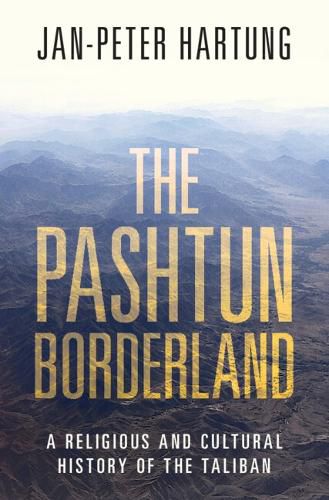Readings Newsletter
Become a Readings Member to make your shopping experience even easier.
Sign in or sign up for free!
You’re not far away from qualifying for FREE standard shipping within Australia
You’ve qualified for FREE standard shipping within Australia
The cart is loading…






Since the Taliban returned to power in Afghanistan in 2021, the need to understand the group's history and ideology has only increased. Jan-Peter Hartung's timely study examines the phenomenon of the Taliban through a topographically, ethnically and geo-politically distinct space: the Pashtun Borderland of today's Afghanistan and Pakistan. Emphasising the central role of Pashtun ethnicity, Hartung covers approximately five hundred years of Pashtun history: from the early modern Mughal empire to the first Durrani Empire in the eighteenth century and the regional developments during the colonial period in the nineteenth and early twentieth century. Drawing from a wealth of primary source materials in Pashto, Persian, Urdu and Arabic, Hartung moves the discussion of the Taliban beyond the immediacy of journalistic reportage and security-orientated studies, to a nuanced analysis of a wide range of actors and ideologies, refracting Afghanistan's present moment through the lens of its long cultural and religious history.
$9.00 standard shipping within Australia
FREE standard shipping within Australia for orders over $100.00
Express & International shipping calculated at checkout
Since the Taliban returned to power in Afghanistan in 2021, the need to understand the group's history and ideology has only increased. Jan-Peter Hartung's timely study examines the phenomenon of the Taliban through a topographically, ethnically and geo-politically distinct space: the Pashtun Borderland of today's Afghanistan and Pakistan. Emphasising the central role of Pashtun ethnicity, Hartung covers approximately five hundred years of Pashtun history: from the early modern Mughal empire to the first Durrani Empire in the eighteenth century and the regional developments during the colonial period in the nineteenth and early twentieth century. Drawing from a wealth of primary source materials in Pashto, Persian, Urdu and Arabic, Hartung moves the discussion of the Taliban beyond the immediacy of journalistic reportage and security-orientated studies, to a nuanced analysis of a wide range of actors and ideologies, refracting Afghanistan's present moment through the lens of its long cultural and religious history.